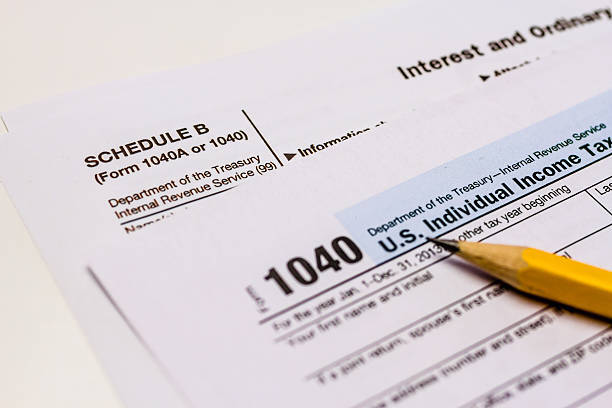IRS Form 1040 Schedule B: Understanding Interest and Ordinary Dividends

The tax landscape is filled with numerous forms, each serving a specific purpose. Among these, IRS Form 1040 Schedule B often stands out as a source of confusion for many taxpayers.
This form, which deals with interest and ordinary dividends, is more than just another piece of paper - it's a crucial component of your tax return.
In this in-depth guide, we'll explore the intricacies of 1040 Schedule B, helping you understand when it's required and how to fill it out accurately.
"The hardest thing in the world to understand is income tax." - Albert Einstein
What exactly is Form 1040 Schedule B?
Definition and core objectives
1040 Schedule B is an auxiliary tax form that serves as an extension to your main tax return, specifically Form 1040. It is designed to report two main types of income: interest and ordinary dividends.
The form is divided into two distinct sections, each dedicated to one of these income types. The primary objective is to provide the IRS with a detailed breakdown of these income streams, which are subject to specific tax rules.
Who is obligated to file it?
The requirement to file 1040 Schedule B is triggered when you receive more than $1,500 in taxable interest or ordinary dividends during the tax year.
This financial threshold is a pivotal factor that dictates whether or not you need to include Schedule B with your Form 1040.
Types of income that go on 1040 Schedule B
Taxable interest income: more than just savings accounts
While many people are aware that interest from savings accounts is taxable, there are other forms of interest income that also need to be reported.
These include:
- Interest from Certificates of Deposit (CDs)
- Interest from corporate bonds
- Interest from Treasury notes and bonds
- Money market account interest
Pro Tip: Certain types of interest, such as those from specific municipal bonds or Series I or EE savings bonds issued after 1989, are not subject to federal income tax. These should not be reported on 1040 Schedule B.
Taxable ordinary dividends: beyond stock payments
Ordinary dividends are not just cash payments from stocks. They can also include:
- Dividends from mutual funds
- Dividends from real estate investment trusts (REITs)
- Certain distributions from money market funds
If your dividend income exceeds the $1,500 IRS threshold, it must be reported on Schedule B.
Additional reporting scenarios
Foreign accounts and trusts: a closer look
1040 Schedule B isn't just about domestic income; it also has a section dedicated to foreign financial interests.
If you have foreign bank accounts or receive distributions from foreign trusts, you are obligated to disclose this information. Failure to do so can result in substantial penalties, including fines and even imprisonment.
Special cases: when the norm doesn't apply
While the $1,500 threshold is the most common trigger for filing Schedule B, there are other scenarios that necessitate its use:
- Seller-financed mortgage interest
- Accrued bond interest not reported on Form 1099-INT
- Financial interest in, or signature authority over, a foreign financial account
Also read - Foreign Bank Account Report (FBAR) Filing Guide
How to complete 1040 Schedule B (step-by-step)
- Collect Financial Documents: Gather all relevant Forms 1099-INT and 1099-DIV.
- Identify Income Sources: List each payer's name and the corresponding amount received.
- Summarize Your Income: Tally up the total interest and dividend income.
- Address Foreign Financial Interests: Answer questions related to foreign accounts and trusts, if applicable.
- Review and Double-Check: Ensure all amounts and details are accurate before attaching Schedule B to your Form 1040.
Where to get Form 1040 Schedule B
Bottom line: why Schedule B matters
Understanding the nuances of Form 1040 Schedule B is vital for accurate and compliant tax reporting. By familiarizing yourself with its various components, you can navigate the complexities of tax season with greater ease.
"Income tax returns are the most imaginative fiction being written today." - Herman Wouk



